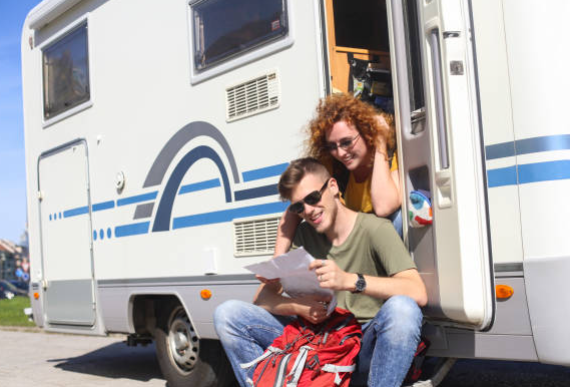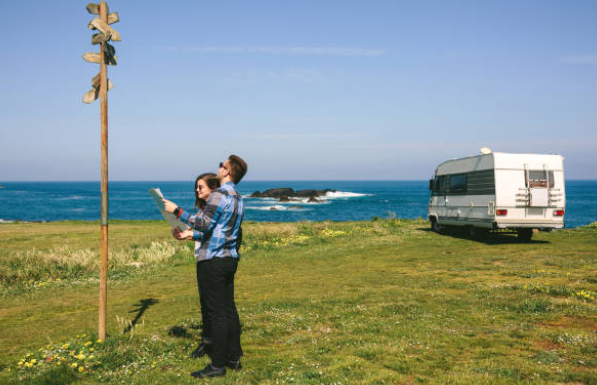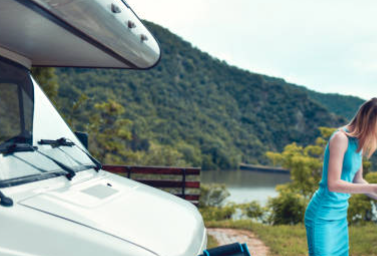Business Loans To Start A Campground
If you’re dreaming of starting a campground but lack funds, explore potential financial support, including grants for campgrounds, alongside business loans. These grants can help with land purchase, cabin construction, and marketing. To qualify, a solid business plan, a good credit history, and collateral are important. Combining these options can boost your chances of turning your campground dream into a reality.
Types Of Business Loans To Start A Campground
If you’re looking to start a campground, there are several types of business loans you can consider.

Traditional financing is a common option: borrowing money from a bank or financial institution and paying it back with interest over time.
Another option is an SBA loan, backed by the Small Business Administration and offers favorable terms for small businesses.
Additionally, equipment financing allows you to borrow money specifically for purchasing equipment needed for your campground, while a merchant cash advance provides a lump sum of money in exchange for a portion of your future sales.
1. Traditional Financing
When starting a campground, you’ll need to consider traditional financing options for obtaining a business loan. Traditional financing refers to loans offered by banks or other financial institutions that follow traditional lending practices.
These loans often require a thorough business plan, collateral, and a good credit score. To obtain a traditional business loan, you’ll need to present a well-researched and detailed business plan that demonstrates the viability of your campground. This plan should include information about your target market, competition analysis, marketing strategies, and financial projections.
2. SBA Loan
The Small Business Administration (SBA) loan program offers a viable alternative for financing a campground. With an SBA loan, you can access funding that is specifically designed to support small businesses like yours.
The SBA works with approved lenders to provide loans with favorable terms, such as lower interest rates and longer repayment periods. This can be incredibly beneficial when starting a campground, as it allows you to secure the necessary funds without putting too much strain on your cash flow.
3. Equipment Financing
To outfit your campground with the necessary gear, you can easily obtain financing for equipment through various options. Equipment financing is a great way to secure the funds needed to purchase items such as tents, RVs, picnic tables, and other essential equipment. With this type of loan, you can spread out the cost of these items over a period of time, making it more manageable for your business.
One option for equipment financing is to work with a lender who specializes in providing loans for campground businesses. These lenders understand the unique needs of your industry and can offer competitive rates and terms. They’ll work with you to determine the amount of financing you need and create a repayment plan that fits your budget.
4. Merchant Cash Advance
Don’t miss out on the opportunity to take your campground to the next level with a merchant cash advance. This type of business loan provides you with a lump sum of cash upfront, which you can then use to invest in your campground.
Whether you need to purchase new equipment, upgrade your facilities, or expand your marketing efforts, a merchant cash advance can provide you with the funds you need quickly and easily.
Unlike traditional loans, a merchant cash advance is based on your future credit card sales. The lender will advance you a certain amount of money, and then you will repay that amount plus a fee by allowing the lender to take a percentage of your daily credit card sales.
How To Qualify For A Business Loan?
To qualify for a business loan, you need to have a strong credit history, a well-developed business plan, and collateral.

Your credit history shows lenders how responsible you are with borrowing and repaying money.
A solid business plan demonstrates your ability to generate revenue and repay the loan.
Collateral acts as a guarantee for the lender, reducing their risk in case you default on the loan.
1. Credit History
When looking for a business loan to start a campground, it’s essential to have a solid credit history. Lenders will assess your credit history to determine your ability to manage debt and make timely payments.
To qualify for a business loan, you’ll need a credit score that demonstrates financial responsibility and reliability. Lenders typically look for a credit score of 680 or higher, but each lender may have different requirements. If your credit score falls below the desired range, it’s important to take steps to improve it before applying for a loan. This may include paying off outstanding debts, making all payments on time, and minimizing the use of credit cards.
2. Business Plan
Imagine the satisfaction and pride you’ll feel when you have a well-crafted business plan that showcases the full potential of your campground venture.
A business plan not only serves as a roadmap for your future success, but it also demonstrates to lenders that you have a clear vision and strategy in place.
When applying for a business loan to start a campground, having a comprehensive business plan is essential. Your plan should include details about the location, target market, amenities, and services you plan to offer.
It should also outline your marketing and sales strategies, financial projections, and potential risks and challenges. By presenting a strong and compelling business plan, you increase your chances of securing the funding you need to turn your campground dream into a reality.
In your business plan, it’s important to highlight the unique features and attractions that set your campground apart from others. This could include beautiful natural surroundings, convenient amenities, or specialized activities for campers.
3. Collateral
Now that you’ve developed a comprehensive business plan for your campground, it’s time to consider the collateral you can offer to secure a business loan. Collateral is an asset or property that you pledge to a lender as a guarantee to repay the loan. In the case of starting a campground, there are various options for collateral that can help you secure the necessary funding.
One common form of collateral for a campground business loan is the land and property you plan to purchase or use for your campground. Lenders are more likely to provide funding if they have something tangible to secure the loan against. So, if you own the land or have identified a suitable property for your campground, it can serve as valuable collateral.
How To Use A Business Loan To Start A Campground?
If you’re considering using a business loan to start a campground, there are a few key points to keep in mind.

First, you’ll want to research potential locations to ensure that you choose the best one for your campground.
Next, it’s important to create a comprehensive business plan that outlines your goals, target market, and financial projections.
Finally, you’ll need to obtain any necessary permits and licenses, and consider hiring employees to help manage and run your campground effectively.
Additional Reading: How Much Does It Cost To Build A Campground Bathroom?
Research Potential Locations
Researching potential locations for your campground? This step is crucial in ensuring the success of your business.
Start by identifying the geographic location that best suits your target market and the type of campground you want to create. Consider factors such as accessibility, proximity to attractions or natural features, and the overall appeal of the area. Conduct thorough market research to determine the demand for campgrounds in that particular location. Look for areas with limited competition and a high demand for outdoor recreational activities.
By choosing the right location, you can attract a steady stream of campers and maximize your chances of success.
Create A Business Plan
Developing a solid plan ensures the long-term success and viability of your campground venture. Start by clearly defining your business goals and objectives.
Consider what amenities and services you’ll offer, such as RV hookups, tent sites, cabins, swimming pools, hiking trails, and recreational activities. Determine your target market and conduct market research to understand the demand for campgrounds in your chosen location. Identify your competition and analyze their strengths and weaknesses to differentiate your business.
Next, create a comprehensive marketing strategy to promote your campground. Utilize online platforms, social media, and local advertising to reach your target audience. Develop a pricing strategy that’s competitive yet profitable, taking into account your operating costs and desired profit margins.
Obtain Necessary Permits
Now that you’ve created a solid business plan for your campground, it’s time to shift your focus to obtaining the necessary permits.
This step is crucial in ensuring that your campground operates legally and meets all the necessary requirements. By obtaining the proper permits, you won’t only avoid potential legal issues but also gain the trust and confidence of your customers and investors.
To start, you’ll need to research and identify the specific permits required for operating a campground in your area. This may include permits for zoning, land use, health and safety, environmental impact, and more. Each jurisdiction may have different requirements, so it’s important to thoroughly understand the regulations that apply to your specific location.
Hire Employees
Ready to take your campground to the next level? It’s time to bring in a dedicated team of employees to help you provide an unforgettable outdoor experience for your guests.
Hiring employees is an essential step in expanding your business and ensuring its success. By having a team of skilled and passionate individuals, you can enhance the overall customer experience and offer a wider range of services and activities.
When hiring employees for your campground, it’s crucial to carefully consider the specific roles and responsibilities you need to fill. Look for individuals who have a strong work ethic, excellent communication skills, and a genuine love for the outdoors.
Learn More: How To Buy A Campground With No Money?
Conclusion
In conclusion, starting a campground is an exciting but capital-intensive venture. Various business loans are available to finance your startup. Understanding loan types and qualification criteria is crucial. Once you secure a loan, use funds wisely for land purchase, facility construction, and marketing. Qualification often involves a solid business plan, good credit, and financial stability. Research loan options, have a clear plan for fund utilization, and turn your dream of a campground into a reality. Explore loan options and take the first step toward creating a successful campground.


